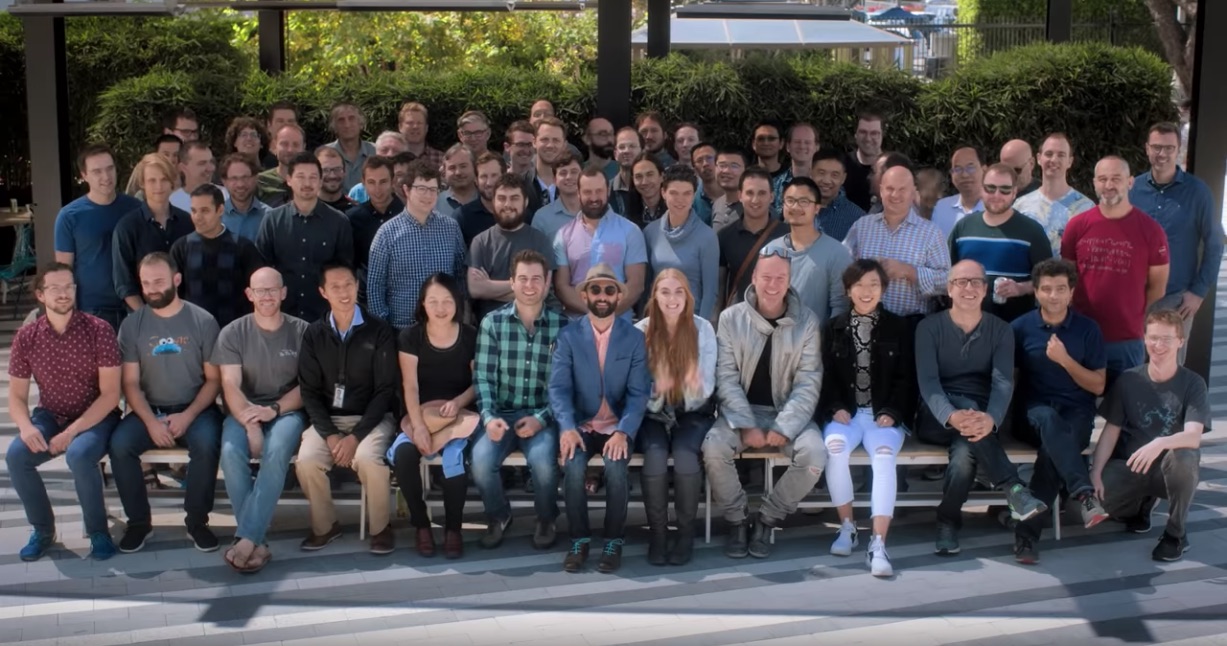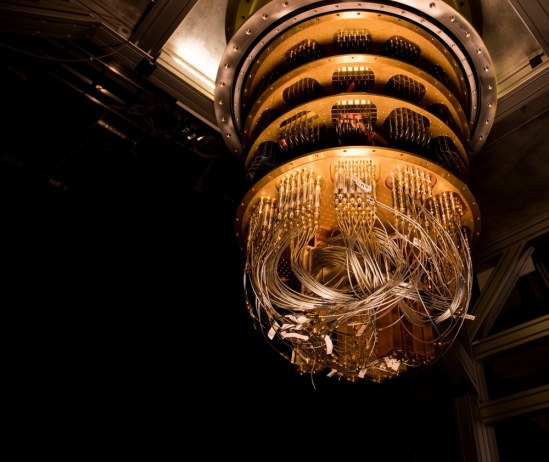Google Goleta Announces Historic Quantum Processor Success
UCSB Physicist John Martinis and Team Achieve Speed 'Supremacy'

Google’s supercomputing team based in Goleta announced a historic breakthrough today: verified success of their quantum computing Sycamore processor. The theory since the early 1980s has been that a quantum computer could solve large problems — very, very large math problems. The Sycamore processor completed in 200 seconds “one instance of a quantum circuit a million times” — a state-of-the-art supercomputer would take 10,000 years to complete the same task, the authors state in the paper released today in the journal Nature. That, indeed, is quantum supremacy.
The group has been holed up in Goleta in recent years at an innocuous building off Patterson Avenue that is necessarily hooked up to a quantity of refrigeration units. The small atomic structures, or qubits, that make up the quantum process hold together best in subzero temperatures. Fabricating the processor was just the first step assigned to a group led by Dr. John Martinis, a physicist at UC Santa Barbara, by Google’s Hartmut Neven. At Google since about 2006, Neven is engineering director of the goliath’s Quantum Artificial Intelligence lab and co-founded the Google Glass effort. Martinis and his team have been researching quantum computing at UCSB for about two decades.

Among the tasks before the group was to imagine a test “that is hard for a classical computer but easy for a quantum computer” and conducted in something called a Hilbert space (infinite but measurable) with an error rate that was low enough to fairly compare to a classical — or, what is now known as an “old” — supercomputer. Their success in doing so multiple times allows the Sycamore to claim “supremacy,” or a task an old supercomputer cannot do, “a milestone on the path to full-scale quantum computing.”
What enabled the Sycamore to work almost instantaneously were several technical advances the Martinis group developed — and which require a physics PhD to decipher: “gates” that “executed simultaneously across a two-dimensional qubit array,” something called “cross-entropy benchmarking,” and “component level fidelities” that they used to predict, accurately, how the system would perform, which gave them confidence the process would work on large systems.
The computation set for the Sycamore was to generate random numbers, much as a decrypting machine might. According to Brooks Foxen, a graduate student and one of the 77 people on Team Martinis, “It requires computing the probability of being in any one of the 2^53 possible states.” Two to the 53rd power results in a number with five commas — apparently 9 quadrillion (give or take 12 trillion). “The exponential scaling is why people are interested in quantum computing to begin with,” Foxen told UCSB’s The Current.
Hartmut Neven, interviewed in Quanta Magazine in 2018, said that given the leaps in computational power, quantum supremacy would occur by 2019. The authors in the Nature paper expect that with their achievement of a quantum processor, that power will grow at a double-exponential rate — but they temper their glee somewhat: “quantum error correction will need to become a focus of attention.”
Nonetheless, they conclude: “[Q]uantum computing is transitioning from a research topic to a technology that unlocks new computational capabilities. We are only one creative algorithm away from valuable near-term applications.”
The authors of “Quantum supremacy using a programmable superconducting processor” are: Frank Arute, Kunal Arya, Ryan Babbush, Dave Bacon, Joseph C. Bardin, Rami Barends, Rupak Biswas, Sergio Boixo, Fernando G. S. L. Brandao, David A. Buell, Brian Burkett, Yu Chen, Zijun Chen, Ben Chiaro, Roberto Collins, William Courtney, Andrew Dunsworth, Edward Farhi, Brooks Foxen, Austin Fowler, Craig Gidney, Marissa Giustina, Rob Graff, Keith Guerin, Steve Habegger, Matthew P. Harrigan, Michael J. Hartmann, Alan Ho, Markus Hoffmann, Trent Huang, Travis S. Humble, Sergei V. Isakov, Evan Jeffrey, Zhang Jiang, Dvir Kafri, Kostyantyn Kechedzhi, Julian Kelly, Paul V. Klimov, Sergey Knysh, Alexander Korotkov, Fedor Kostritsa, David Landhuis, Mike Lindmark, Erik Lucero, Dmitry Lyakh, Salvatore Mandrà, Jarrod R. McClean, Matthew McEwen, Anthony Megrant, Xiao Mi, Kristel Michielsen, Masoud Mohseni, Josh Mutus, Ofer Naaman, Matthew Neeley, Charles Neill, Murphy Yuezhen Niu, Eric Ostby, Andre Petukhov, John C. Platt, Chris Quintana, Eleanor G. Rieffel, Pedram Roushan, Nicholas C. Rubin, Daniel Sank, Kevin J. Satzinger, Vadim Smelyanskiy, Kevin J. Sung, Matthew D. Trevithick, Amit Vainsencher, Benjamin Villalonga, Theodore White, Z. Jamie Yao, Ping Yeh, Adam Zalcman, Hartmut Neven, and John M. Martinis.




You must be logged in to post a comment.